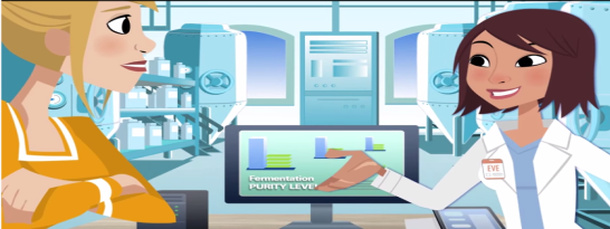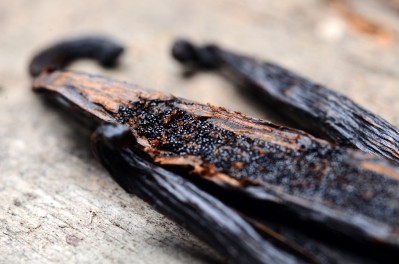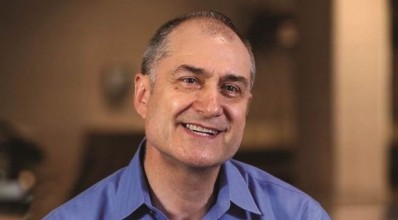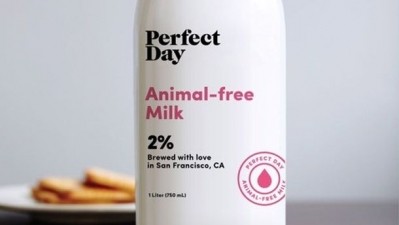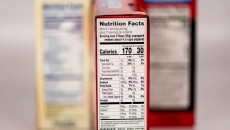Interview: Neil Goldsmith, CEO, Evolva
Synthetic biology is cheaper, faster, and more sustainable, says Evolva CEO: 'We’re proud of what we do'
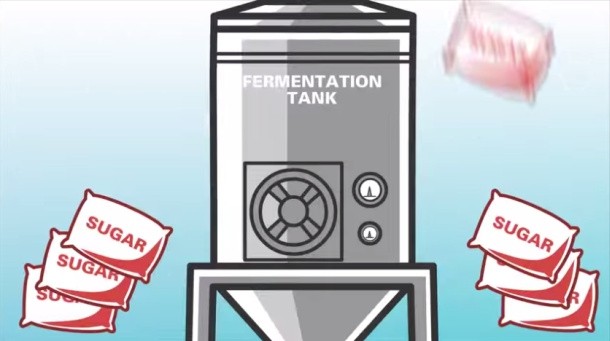
And if what emerges from the fermentation process is chemically indistinguishable from what is extracted from a stevia leaf, or vanilla seed pod, does the fact ‘synthetic biology’ has made it possible mean it’s dangerous, unnatural and unregulated?
When we think about how food is going to be produced in future, and how we define sustainability, we should scrutinize new technology carefully, but we should also keep an open mind, says Neil Goldsmith, CEO of Swiss synthetic biology pioneer Evolva.
Take vanillin, the overwhelming majority of which is not sourced from seed pods of vanilla orchids but made ‘synthetically’ from the petrochemical constituent guaiacol, because demand for vanilla flavor massively outstrips the supply of vanilla seed pods, he says.
As satisfying global demand for vanilla flavor is just not possible from plants, would consumers prefer their favorite ice cream flavor to be produced via fermentation from baker’s yeast - albeit a genetically tweaked variety - or from petrochemicals?
Plants contain many valuable compounds, but they may not be amenable to mass cultivation, or are only present in tiny amounts, or the product may have an unstable supply chain
“I think if you lay out to consumers what it is you are doing and what the benefits are, they can make up their own minds,” Goldsmith told FoodNavigator-USA. “Yes, there will be some people that don’t want our products, but there are many more people that will see the benefits in terms of taste and affordability and sustainability.
“Take Reb D and Reb M [minor steviol glycosides]. They taste better than Reb A but they are found at such tiny tiny quantities in the stevia leaf that it’s not commercially viable to extract them. We can change that equation.
“Plants contain many valuable compounds, but they may not be amenable to mass cultivation, or maybe the compound is only present in tiny amounts, or the product may have an unstable supply chain. We can unlock this diversity and unleash the cornucopia of nature, fundamentally, so that food and beverage companies can use a whole range of ingredients that we can’t use today [saffron tastes amazing, but it’s the most expensive food on the planet].”
We’ve talked more in terms of ‘brewing’ because people know what it means
In retrospect, the term ‘synthetic biology’ is not a particularly helpful or consumer-friendly way of describing what it is that Evolva and other firms such as Allylix, Amyris, Isobionics and Solazyme do, but it has “kind of stuck”, he adds.
“It’s come to mean making a gene synthetically, but that’s kind of misleading as you copy that gene using traditional techniques. It was a nice phrase for academics, but it’s not that useful. We talk more in terms of ‘brewing’ because people know what that means [beer is brewed in big fermentation tanks], while it also clearly distinguishes our vanillin from Madagascan vanilla.”
Anti-GMO activists, however, are already dubbing synthetic biology as ‘extreme genetic engineering’ and ‘GMO 2.0’ and are urging consumers, and food and beverage firms, to steer well clear.
For some companies I think it’s a case of why should I put my head above the parapet if the next guy doesn’t
So how is Evolva engaging with the debate?
“We’re not trying to ‘neutralize’ our critics,” says Goldsmith. “I think when you are producing something that consumers are going to eat, they are putting their trust in you, so we believe in transparency. We’re not trying to hide what we do.
"The activists have provided useful inputs for us. FOE and ETC have both made the point to us that they think we put too much emphasis on the 'hard elements of sustainability such as carbon emissions and water usage and not enough on the “social” elements. We have increased our emphasis on this second point as a result, for example by increasing our emphasis on ingredients that provide functional benefits to individuals."
While many big food companies have tried to keep their names/brands out of the GMO debate, he adds, the conversation is taking place with or without them, and they might be better advised to stand up and explain what they are doing and why there is a consumer benefit (cost, nutrition, sustainability) instead of burying their heads in the sand, wringing their hands about attacks from activist groups, and diverting inquiries to faceless industry-association-backed websites and organizations.
“For some companies I think it’s a case of why should I put my head above the parapet if the next guy doesn’t. But I am proud of what we do.”
We’re not trying to ‘neutralize’ our critics
So what does Evolva do?
By understanding how plants turn sugar into desirable compounds, which is “via a cascade of enzymes that are themselves made by a cascade of genes”, he says, Evolva can work out how to biosynthesize them via a fermentation process in which it inserts these genes into the native DNA of baker’s yeast. This gives the yeast the same ability to convert sugar into the desirable compounds as the plant has. "But we can then tweak the yeast genes so that it makes the desired ingredient way more efficiently than the plant does."

“Take saffron,” says Goldsmith. “We first identify the genes that the saffron crocus uses to turn sugar into saffron or different components of saffron. Now those genes will also occur in other plants, and the crocus will not have the best gene for every step in the cascade - so we take those genes from different plants and optimize them to work in yeast so that the yeast can make as much saffron as possible."
He adds: “We synthesize genes as part of that process, but we’re not ‘printing fake DNA’. All genes are just sequences of data and these sequences change all the time in nature anyway.”
The yeast itself is a processing aid, and is not contained in Evolva’s final ingredients, which are made with the use of a genetically engineered organism (ie. yeast) but are not themselves GMOs, he says, an important distinction in regulatory terms (processing aids do not meet the criteria for GMO labeling in Europe or in US states that have passed GMO labeling legislation such as Vermont).
However, it remains to be seen whether the Non-GMO Project would consider ‘synbio’ vanillin or Reb D to be Non-GMO.
We’re not operating in a black box. It’s precisely the opposite
As to how synbio compares to ‘traditional’ genetic engineering techniques, he says, “It’s like the difference between an apple i-phone today and a compaq luggable from the 1980s. It's just more advanced.”
So rather than taking, say, one gene from a soil bacterium and putting it into a cotton plant so the plant produces its own insecticide, Evolva might “typically be working with 10 or 15 different genes simultaneously in our yeast”, says Goldsmith.
Indeed, the key to Evolva’s technology platform is its ability to rapidly insert and express 10s or even 100s of genes in billions of individual yeast cells to determine precisely what combinations are needed to biosynthesize a given ingredient in the most efficient way, he says.

So to hear critics describe synbio as a ‘black box’ approach generating “unpredictable” results is therefore odd, he says, because “it’s actually the precise opposite. Traditional crop breeding is done in a black box. By comparison, we are operating in a white box.”
Vanillin is vanillin - regardless of source…
From a safety perspective meanwhile, Evolva ingredients such as vanillin (now commercially available from its partner IFF) have gone through the FEMA GRAS process (determined safe by the Flavor and Extract Manufacturers Association expert panel).
But even if this doesn’t reassure people, he points out, there is no logical reason why Evolva’s vanillin should be any less safe than vanillin from a vanilla pod, petrochemicals, paper waste, clove oil, or fermented ferulic acid from rice bran.
“The vanillin molecule we are making is the same. It's chemically identical. The only way you can tell the difference is if you were to do carbon isotope testing.”
There is already ‘natural’ vanillin on the market that does not come from the vanilla plant
But what about the ‘natural’ question, which critics say is one of their biggest issues with Evolva, which they claim will destroy the livelihoods of Madagascan vanilla farmers by exploiting a legal ‘loophole’ that allows it to market its ‘synbio vanillin’ as ‘natural’ (the FDA says natural flavors can come from yeasts and products derived from fermentation process - click HERE)?
What many people may not realize is that there is already vanillin on the market that does not come from the vanilla plant, but is marketed as ‘natural’, points out Goldsmith, noting that firms have been producing this ‘natural’ vanillin via a fermentation process from ferulic acid from rice bran or other raw materials for years - at a significantly lower price than what food companies pay for the stuff from vanilla seed pods.
And yet this hasn’t destroyed the Madagascan vanilla market, which will continue to serve customers such as Häagen-Dazs that use natural vanilla extract, which by definition must come from vanilla seed pods, and contains a mixture of several hundred compounds in addition to vanillin, he says.
“Production of vanilla [orchids] has actually increased significantly since these ‘natural vanillin’ products became available. I just don’t think companies that are using Madagascan vanilla extract are going to switch to our product. It’s a different market.”
So how big of a share of the vanillin market does he think Evolva/IFF can take? Far too early to say, he says: “We’re not at the point yet where we can compete head on with Chinese vanillin at $10-20/kg but we certainly aim to get there over time.”

We’re most interested in food and cosmetic ingredients that maybe don’t exist as products yet
So where do things currently stand with Evolva’s product pipeline?
Its vanillin is now commercially available, with partner IFF expecting the first revenues to come the second half of 2014, he says. Resveratrol will be available in October; a range of steviol glycosides (via Cargill) will follow in 2015/16; while saffron will likely arrive on the market in 2016.
Evolva has also teamed up with Roquette “to find novel and optimized biosynthetic production routes for an [undisclosed] ingredient with important applications in food products”, while a project with Ajinomoto is “progressing according to plan”.
For some ingredients, such as resveratrol, Evolva will manufacture, sell and market its own products. In others it will work with a global supply chain partner (Cargill, IFF) who will take control of production, sales and marketing, he says.
It’s a transformative technology but it’s still very early days
But where is this technology going, and why don’t the big food ingredient companies do synbio themselves?
Some of them will, but in general, flavor & fragrance firms are not biotech experts, and from an R&D perspective, it makes more sense for them to partner with experts such as Evolva, he says.
“We’re most interested in food and cosmetic ingredients that maybe don’t exist as products yet because they can’t be made economically. It’s a transformative technology but it’s still very early days. No one really knows how things will pan out at this stage.”
Click HERE to read about what Friends of the Earth and some other opponents of the technology had to say at Natural Products Expo East last week.
Watch the video below to see how Evolva has tried to demystify its process.

